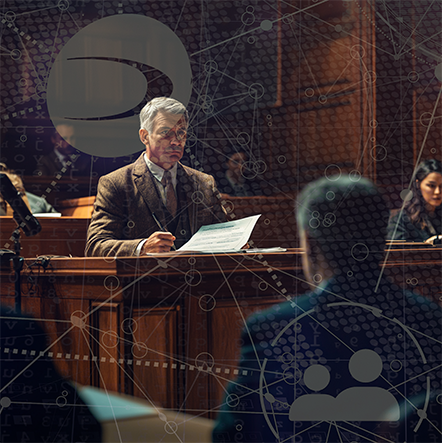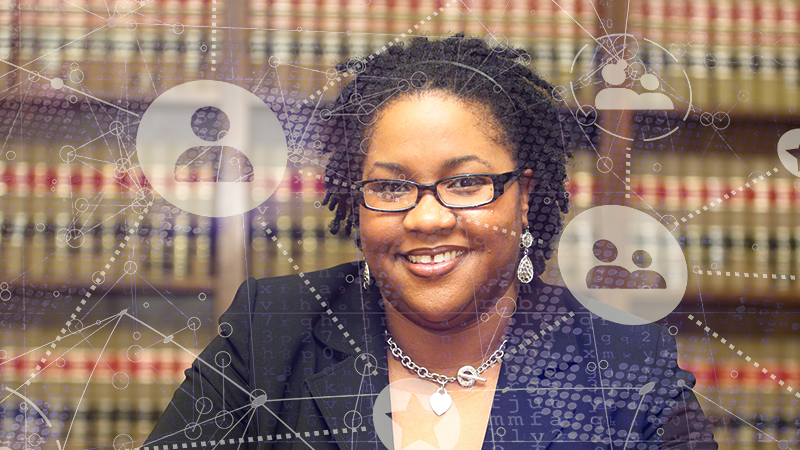Introduction
Expert witnesses are crucial in helping courts understand complex medical, psychological, and cognitive issues that may be beyond the average person’s knowledge. Among the most frequently called upon experts are neuropsychology expert witnesses and psychology expert witnesses. These professionals offer distinct areas of expertise, and their testimony can significantly impact legal outcomes, particularly in personal injury and criminal and family court cases.
Understanding the differences between neuropsychology expert witnesses and psychology expert witnesses is essential for attorneys when selecting the right expert for a case. This blog will explore the key differences, compare qualifications, provide examples from real legal cases, and highlight the benefits of hiring each type of expert witness.
What Is a Neuropsychology Expert Witness?
Expertise in Brain Function and Behavior
A neuropsychology expert witness specializes in assessing the relationship between brain function and behavior. Attorneys typically call on neuropsychologists in cases where brain injuries or disorders affect an individual’s ability to think, remember, and make decisions. Common neurological conditions they assess include:
- Traumatic brain injuries (TBI)
- Strokes
- Neurodegenerative diseases (e.g., Alzheimer’s, Parkinson’s)
- Brain tumors
- Epilepsy
- Neurodevelopmental disorders
Neuropsychologists use cognitive testing to evaluate a person’s memory, attention, executive functioning, and problem-solving abilities. Their assessments are essential in determining the cognitive impact of brain injuries or disorders and how these impairments influence behavior and decision-making.
Legal Case Examples Involving Neuropsychology Expert Witnesses
Neuropsychology expert witnesses frequently participate in personal injury, criminal, and disability claims where cognitive impairment plays a critical role. Here are some examples:
- Traumatic Brain Injury Cases: In personal injury cases, neuropsychologists assess the cognitive deficits caused by TBIs resulting from accidents. Their evaluations often influence the amount of compensation awarded.
- Criminal Cases: In criminal trials, attorneys often ask a neuropsychologist to determine whether a brain injury affects the defendant’s competency to stand trial or their ability to understand the consequences of their actions. For example, in insanity defense cases, neuropsychologists play a key role in evaluating mental state and cognitive impairment.
- Disability and Workers’ Compensation: Neuropsychologists assess claimants suffering from cognitive impairments due to workplace accidents. Their evaluations help determine whether the person is fit to continue working or eligible for disability benefits.
What Is a Psychology Expert Witness?
Mental Health and Behavior Expertise
Psychology expert witnesses focus on mental health, emotional functioning, and behavior. Their expertise extends to diagnosing and evaluating conditions such as:
- Depression
- Anxiety disorders
- Personality disorders
- Schizophrenia
- Post-traumatic stress disorder (PTSD)
- Substance abuse disorders
While psychologists may address brain function, they primarily focus on mental health and behavior. They often evaluate the emotional and psychological impacts of trauma, stress, or mental illness. Psychology expert witnesses are often involved in child custody cases, criminal proceedings, and workplace disputes.
Legal Case Examples Involving Psychology Expert Witnesses
Attorneys frequently call on psychology expert witnesses in cases where mental health disorders and behavioral issues are key components. Some typical cases include:
- Child Custody Disputes: In family court, psychologists evaluate both parents and children to determine the psychological well-being of each party and offer recommendations for custody arrangements.
- Criminal Cases: In competency evaluations and insanity defense cases, psychologists assess whether a defendant is mentally capable of understanding legal proceedings or if their mental state at the time of the crime affected their judgment. For example, in the famous John Hinckley Jr. case, psychological evaluations were key to the outcome of the trial.
- Workplace Disputes: Psychologists often assess mental health issues in employment law cases, particularly when workplace discrimination or harassment has caused psychological harm to an employee.
Key Differences Between Neuropsychology and Psychology Expert Witnesses
Scope of Expertise
The most notable difference between these experts lies in the scope of their work:
- Neuropsychologists focus on the relationship between brain function and cognition. Their expertise is highly specialized in assessing brain injuries and cognitive impairments that affect memory, attention, and decision-making.
- Psychologists cover a broader spectrum of mental health and behavior. They address emotional functioning, psychological disorders, and the impact of mental illness on behavior.
Types of Assessments
Neuropsychologists use specialized neurocognitive assessments designed to evaluate brain function and cognitive abilities. These tests include memory recall, attention span evaluations, and problem-solving tasks, and they often take several hours to complete.
Psychologists conduct a wider range of psychological evaluations that focus on mental health disorders. These assessments include personality tests, behavioral evaluations, and diagnostic interviews for conditions like depression, anxiety, and PTSD.
Types of Legal Cases
- Neuropsychologists are most often involved in cases that have an apparent neurological component, such as traumatic brain injury, stroke, or neurodegenerative disease.
- Psychologists frequently handle cases involving mental health disorders, family law matters, and workplace disputes. They are also key in criminal cases where mental health plays a role in the defendant’s behavior or competency.
Detailed Comparison of Qualifications and Training
Neuropsychology Expert Witness Qualifications
To become a neuropsychology expert witness, one must complete a rigorous path of education and training:
- Doctoral Degree in Psychology: A neuropsychologist typically holds a Ph.D. or Psy.D. in psychology with a focus on neuropsychology.
- Postdoctoral Training: Neuropsychologists undergo postdoctoral training in clinical neuropsychology, which focuses on brain function and cognitive assessment.
- Board Certification: Many neuropsychologists pursue certification from the American Board of Clinical Neuropsychology (ABCN) or a similar organization. This requires passing rigorous exams and documenting thousands of hours of supervised experience.
Psychology Expert Witness Qualifications
The path to becoming a psychology expert witness involves slightly different training:
- Doctoral Degree in Psychology: Like neuropsychologists, psychologists hold a Ph.D. or Psy.D., but their focus may be on clinical, forensic, or counseling psychology rather than neuropsychology.
- Internship and Supervised Experience: Psychologists complete internships in mental health facilities or forensic settings to gain practical experience in diagnosing and treating psychological disorders.
- Specialized Training: Psychologists working in the legal field often undergo forensic psychology training to understand the intersection of psychology and the law.
Benefits of Hiring a Neuropsychology Expert Witness
Specialized Knowledge in Cognitive Function
A neuropsychology expert witness offers specialized knowledge in cognitive function, which is particularly valuable in cases involving brain injuries. Their ability to assess how neurological conditions impact cognition makes them indispensable in personal injury, disability claims, and medical malpractice cases.
Assessing Brain-Related Injuries
In cases where a plaintiff has suffered a traumatic brain injury, neuropsychologists provide objective assessments of the extent of the injury and its impact on daily life. This information is crucial when determining compensation or establishing the extent of liability.
Benefits of Hiring a Psychology Expert Witness
Broader Mental Health Assessments
A psychology expert witness provides comprehensive evaluations of a person’s mental health and emotional functioning. Their expertise is essential in family law cases, such as child custody disputes, where a thorough understanding of the psychological dynamics between parents and children is critical.
Insight into Criminal Behavior
In criminal cases, psychologists offer valuable insights into the mental state of defendants. They assess whether mental illness or emotional trauma influenced the defendant’s actions and whether they are competent to stand trial. Their testimony can have a direct impact on sentencing and rehabilitation efforts.
Overlap and Collaboration Between Neuropsychology and Psychology Expert Witnesses
There is often overlap between the roles of neuropsychology and psychology expert witnesses. In complex cases, attorneys often call on both experts to offer complementary insights. For example:
- In personal injury cases, a neuropsychologist may evaluate the cognitive impact of a brain injury, while a psychologist assesses the emotional consequences, such as anxiety or PTSD.
- In criminal cases, forensic neuropsychologists often work alongside psychologists to provide a complete understanding of the defendant’s mental and cognitive state.
This collaboration can offer the court a more holistic view of a person’s mental and cognitive functioning, helping to ensure a fair and informed decision.
Conclusion
Understanding the key differences between neuropsychology expert witnesses and psychology expert witnesses is critical in selecting the right expert for your legal case. While neuropsychologists focus on brain function and cognitive impairments, psychologists offer broader insights into mental health and emotional well-being. Both play vital roles in helping the court understand the complex relationship between the mind, behavior, and legal responsibility.
By considering the specific needs of your case—whether it involves brain injuries, mental health disorders, or criminal behavior—you can make an informed decision on which expert will best support your legal strategy.
Read more:
- National Library of Medicine | Neuropsychologist experts and neurolaw: cases, controversies, and admissibility challenges
- Office of Justice Programs | Psychologist as Expert Witness

Are you an expert?
Join a thriving community of over 15,000 experts at Expertinfo.com, where your knowledge is valued and your expertise makes a difference. With 40 years of experience in connecting experts like you with attorneys who need your specialized skills, we’re dedicated to facilitating successful collaborations. Don’t miss the opportunity to impact critical legal cases and expand your professional network. Reach out today and become part of our extensive database of leading experts. Your expertise isn’t just needed—it’s essential. Connect with us now and start making a difference!






